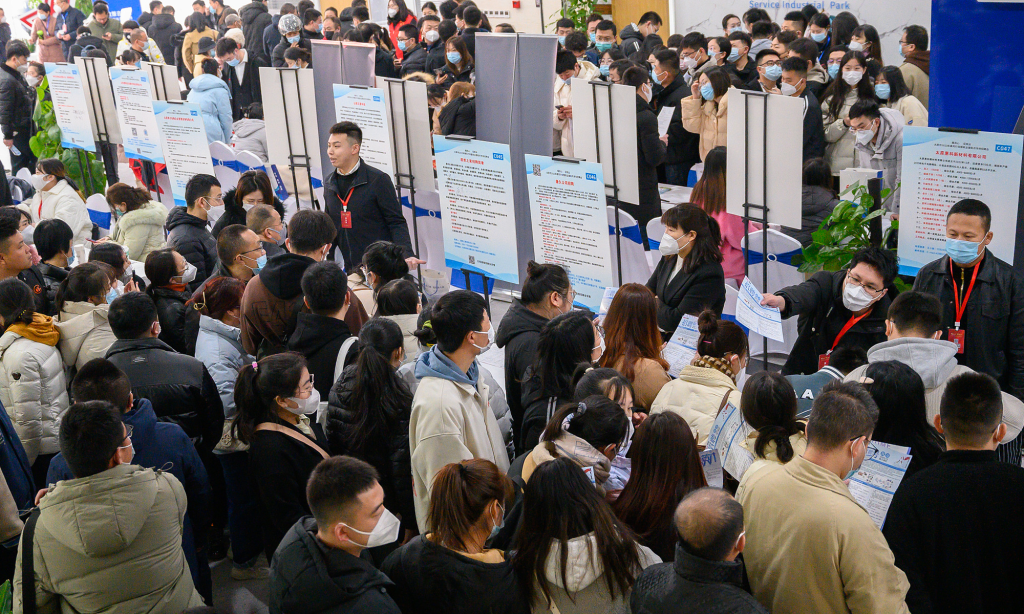Unleashing population potential

In half a month, two economic powerhouse provinces in East China relaxed their household registration limits, leaving many wondering what the lifting of rule which once restricted migration between rural areas and cities signals for the country?
Household registration, known as hukou in Chinese, was formed in 1958. It serves to categorize citizens as either rural residents or non-rural residents.
For a long period, almost all large cities have set strict household registration thresholds, the more economically developed, the higher the bar for registering a local hukou. Obtaining a Beijing and Shanghai hukou could be very difficult as the top cities tend to restrict population growth from becoming overcrowded.
Jiangsu Province recently drafted regulations aiming to relax limits for registering a hukou, allowing residents from rural areas to register themselves in cities, except Nanjing and Suzhou.
Earlier, except provincial capital of Hangzhou, Zhejiang Province also announced to ease restrictions.
A VOA report interpreted the policy shift aimed at propping up China's housing market.
Ma Li, former director of China Population and Development Research Center, told the Global Times that the driving force behind allowing new arrivals to become permanent residents in urban areas is aimed at expanding the available urban talent pool to boost local economic development.
Propping up the housing market is not an explicit goal set by officials, but could be one of those benefits of scrapping household registration limits, Ma noted.
Niu Fengrui, a researcher from Institute of Urban Environment, Chinese Academy of Sciences, told the Global Times that linking the current economic situation to hukou policy reform is too short-sighted, because the essence of lifting household registration curbs is aimed at closing the gap between rural and urban regions and accelerating the urbanization of rural populations, allowing citizens to enjoy equal basic public services, which serves the overall goal of achieving the country's modernization for the wellbeing of all Chinese people.
Optimizing population distribution
The reform of allowing rural hukou holders to register in urban cities is not a new concept. In 2014, the third meeting of the Central Leading Group for Comprehensively Deepening Reform proposed to facilitate 100 million rural migrants and other residents to resettle into urban areas by 2020.
Previously, Guizhou, Sichuan, Inner Mongolia, Hainan, Guangxi and other jurisdictions have also proposed full opening-up of household registration. At least 18 provinces in China have relaxed restrictions on household registration to date, according to media reports.
However, the policy shift may be less attractive to current residents in rural areas as obtaining a urban hukou leads to a possibility of losing their rural land contracting rights and their rights to use residential land. In well-developed provinces including Zhejiang, the shortened gap between rural and urban regions' living standards means any move to further relax restrictions only delivers marginal benefits, Ma noted.
But, rural hukou holders who now work and live in urban areas will certainly embrace the change which allows them to move their permanent place of residence to larger cities. It will grant them the equal access with urban citizens to employment, social security, family planning and other social services, Ma said.
Zhejiang Province said it will increase quotas for public schools and improve capacity for children of residence permit holders to receive education.
Cai Fang, former vice president of the Chinese Academy of Social Sciences, calculated that the number of migrant workers who live in urban areas but do not hold an urban hukou is likely between 130 million and 170 million.
But Ma also noted if rural hukou holders convert their registration to an urban area but still are allowed to hold their rural land contracting rights, an urban hukou would become very attractive because of access to better education and employment in cities. "Cities are on the process of optimizing the relevant measures."
For provincial capital cities including Hangzhou, first-tier cities including Beijing, Shanghai, Shenzhen and Guangzhou where public resources are already stretched, however, the opening up of the household registration policy is unlikely in the short term, experts said.
According to a recent announcement by China's Ministry of Public Security (MPS) on further relaxing household registration, a points-based household registration system for mega cities with a permanent urban population of over 5 million will also be optimized, encouraging local governments to lift restrictions on annual quotas for local household registration.
"The removal of the household registration system has been discussed for many years in China, I personally believe that the economic and social conditions to scrap the policy are already in place, but the traditional mindset of hukou has slowed down the process of household registration reform."
The lifting of hukou restrictions will lead to the concentration of populations in urban areas and the decline of rural populations, several demographers noted.
Following major reform and opening-up, China's urbanization level has increased rapidly, rising from 17.92 percent in 1978 to 64.72 percent in 2021, with the country's urban population reaching 914.25 million, the Guangzhou Daily reported citing Xiao Jincheng, former director of Institute of Land Development and Regional Economy affiliated with the NDRC.
In other words, every year, more than 10 million people move from rural areas to urban areas, find jobs and live in cities. It is believed that China's urbanization level will exceed 70 percent by 2030 and 80 percent by 2050. In the next decade, more than 100 million people will migrate from rural areas to cities and towns, Xiao said.
In the future, as more rural hukou holders move to cities, the country's rural areas are expected to be revitalized as technology-empowered agriculture will nurture professional farmers and ensure talent remains in the farming economy, Ma told the Global Times. "Like those towns in Europe, each town has its own characteristics and own way of development."
Achieving the country's modernization is the process of re-optimizing the layout of China's population, Niu concluded.